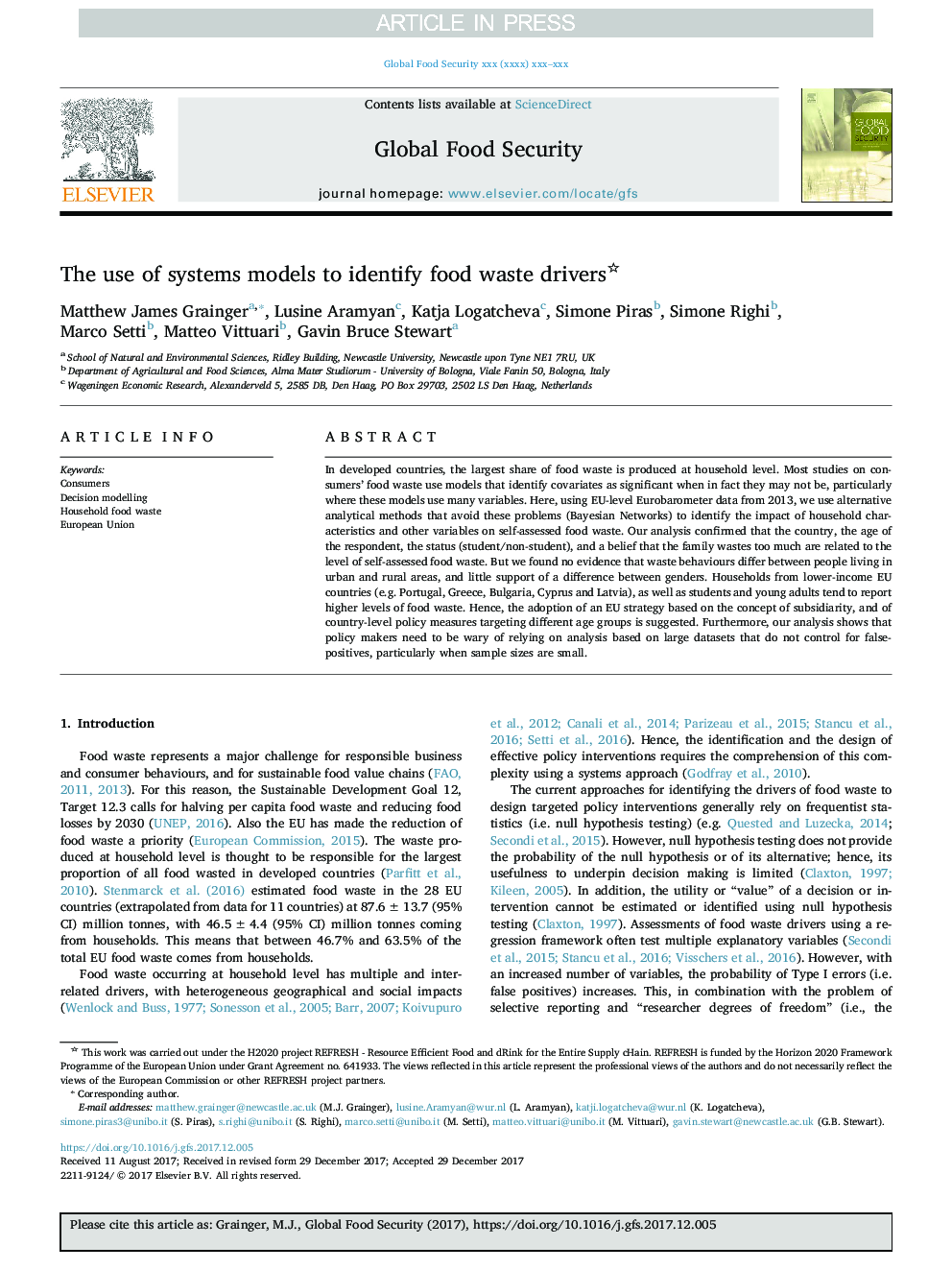| کد مقاله | کد نشریه | سال انتشار | مقاله انگلیسی | نسخه تمام متن |
|---|---|---|---|---|
| 7454482 | 1484431 | 2018 | 8 صفحه PDF | دانلود رایگان |
عنوان انگلیسی مقاله ISI
The use of systems models to identify food waste drivers
ترجمه فارسی عنوان
استفاده از مدل های سیستم برای شناسایی رانندگان اتلاف مواد غذایی
دانلود مقاله + سفارش ترجمه
دانلود مقاله ISI انگلیسی
رایگان برای ایرانیان
کلمات کلیدی
مصرف کنندگان، مدل سازی تصمیم، زباله های مواد غذایی خانگی، اتحادیه اروپا،
موضوعات مرتبط
علوم زیستی و بیوفناوری
علوم کشاورزی و بیولوژیک
علوم زراعت و اصلاح نباتات
چکیده انگلیسی
In developed countries, the largest share of food waste is produced at household level. Most studies on consumers' food waste use models that identify covariates as significant when in fact they may not be, particularly where these models use many variables. Here, using EU-level Eurobarometer data from 2013, we use alternative analytical methods that avoid these problems (Bayesian Networks) to identify the impact of household characteristics and other variables on self-assessed food waste. Our analysis confirmed that the country, the age of the respondent, the status (student/non-student), and a belief that the family wastes too much are related to the level of self-assessed food waste. But we found no evidence that waste behaviours differ between people living in urban and rural areas, and little support of a difference between genders. Households from lower-income EU countries (e.g. Portugal, Greece, Bulgaria, Cyprus and Latvia), as well as students and young adults tend to report higher levels of food waste. Hence, the adoption of an EU strategy based on the concept of subsidiarity, and of country-level policy measures targeting different age groups is suggested. Furthermore, our analysis shows that policy makers need to be wary of relying on analysis based on large datasets that do not control for false-positives, particularly when sample sizes are small.
ناشر
Database: Elsevier - ScienceDirect (ساینس دایرکت)
Journal: Global Food Security - Volume 16, March 2018, Pages 1-8
Journal: Global Food Security - Volume 16, March 2018, Pages 1-8
نویسندگان
Matthew James Grainger, Lusine Aramyan, Katja Logatcheva, Simone Piras, Simone Righi, Marco Setti, Matteo Vittuari, Gavin Bruce Stewart,
